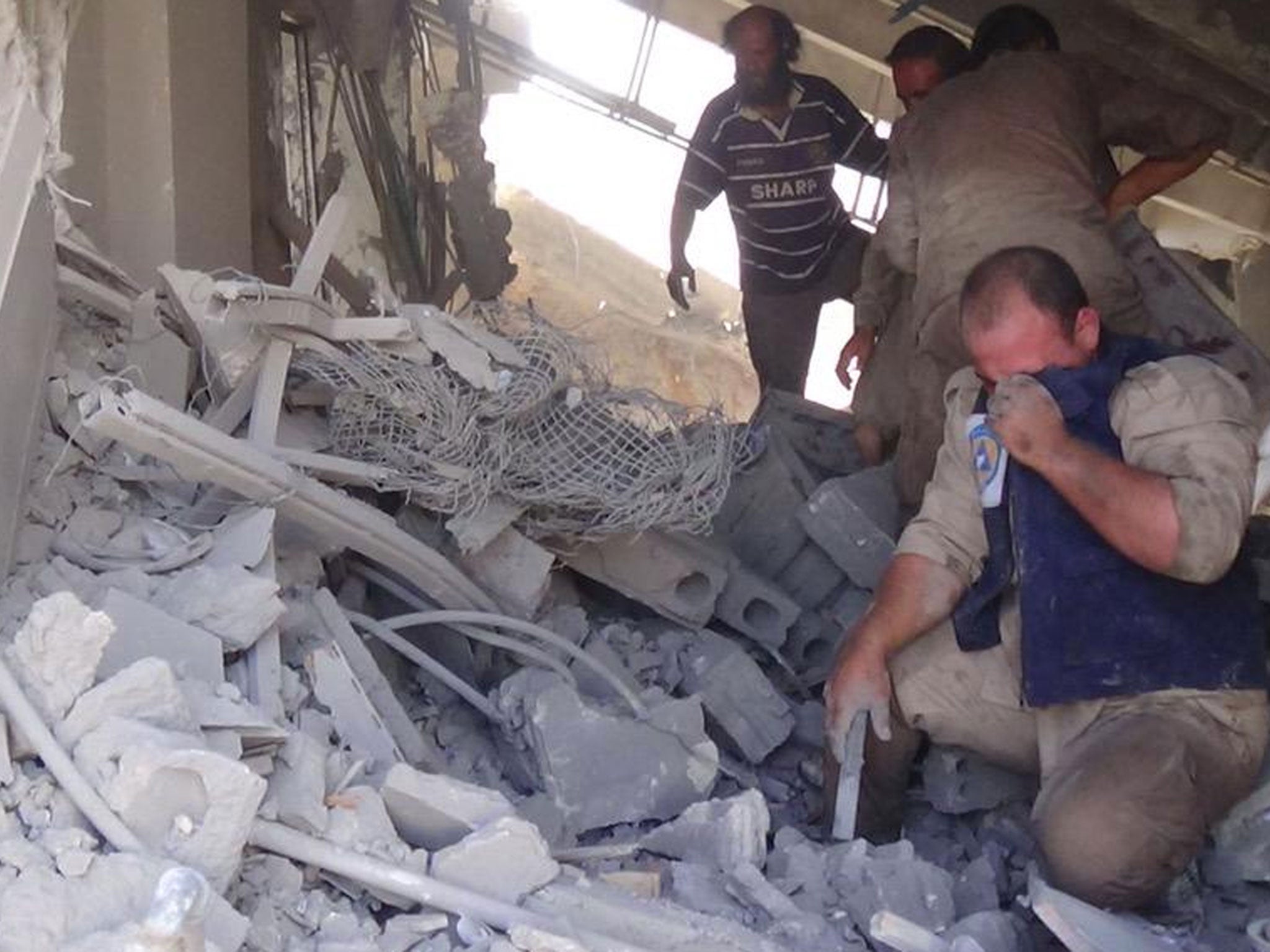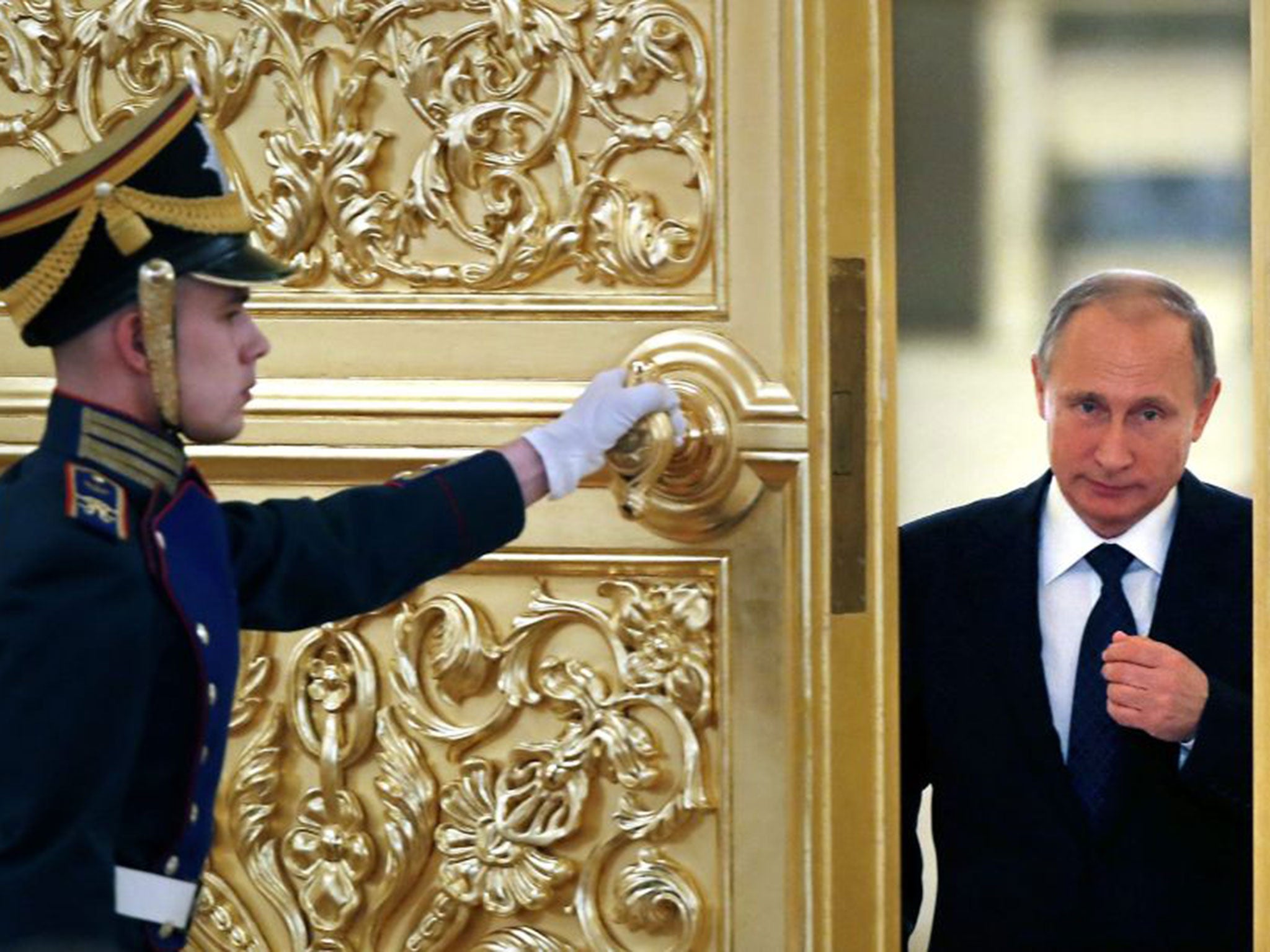Russia in Syria: West has limited options in dealing with Moscow's air strikes
The West may complain that some rebel groups are being attacked, but cannot complain about bombing al-Qaeda affiliates


The conflict in Syria has taken on a fierce momentum with Russia conducting a second day of air strikes and no longer even pretending that it is only attacking Isis. Vladimir Putin’s spokesman declared that other “well-known terrorist organisations” were being targeted.
Reports that Iranian troops, Hezbollah fighters and Assad regime forces had been arriving in the country in large numbers remain uncorroborated, but raise the spectre of even more vicious and widening strife.
The location of the raids carried out today is significant. Some of the targets hit were in Idlib province, most of which was recently captured by the rebels. The supposed movement of the forces of Bashar al-Assad and his allies towards the north has added to speculation that a ground offensive would follow the air strikes. Speaking at the UN in New York, the Russian Foreign Minister, Sergei Lavrov, refused to answer questions about the presence of Iranian and Hezbollah fighters, saying that he was not a military planner.
The places the Russians targeted also fell inside a projected 60-mile deep, 40-mile wide safety zone, free of the regime and Isis, which was due to be set up by Turkey and the US. Jisr al-Shugur, one of the areas repeatedly struck, is just 12 miles from the Turkish border.
Reports that Iranian troops, Hezbollah fighters and Assad forces had been arriving in large numbers raise the spectre of more vicious and widening strife
The zone was going to be one of the main planks of the strategy of the US and its allies in Syria; providing not only a location in which the rebels they support can be trained and armed, but also a place to hold the tens of thousands of refugees who have poured into Turkey.
The US-backed Liwa Suqour al-Jabal group was hit at its base in Idlib, according to its commander. But the main focus of the Russian attack was on Jaysh al-Fateh, or the Army of Conquest, which received more than 30 air strikes. That coalition of rebel militias, including the al-Qaeda linked Jabhat al-Nusra and an assortment of hardline Islamist groups, including Ahrar al-Sham, has been responsible for driving regime forces out of the Idlib area and for a rebel advance towards Latakia, the heartland of the Alawite community, from which Syria’s ruling elite is drawn.
The Army of Conquest has also been fighting Isis, and Turkish officials have admitted giving logistical and intelligence support to its command headquarters, although they deny giving direct help to al-Nusra itself. The Turks are also said to have favoured Ahrar al-Sham maintaining a presence in the safety zone.
Saudi Arabia, too, has been backing the Army of Conquest after previously fraught relations with Turkey over the support given to the Muslim Brotherhood by the government of Recep Tayyip Erdogan began to be mended. Saudi officials are said to have offered the group lavish funds if it could ensure al-Nusra did not carry out terrorist attacks in the West.
Turkey had been relatively quiet earlier this week as the Russian plan for military action unfolded. But yesterday President Erdogan declared that his government will not allow “terror to take root” or a “fait accompli situation” next to the country’s frontier. Officials refused to elaborate on whether any likely confrontation would be with regime forces or Kurdish fighters.

One of the reasons Ankara had pressed for the safety zone was to prevent the PKK, the Kurdish militia in Turkey, and the YPG, its Syrian counterpart, establishing a presence in northern Syrian borderlands. In the chaotic aftermath of further Russian strikes and possible widespread ground conflict, it may now consider military operations inside Syria, something the Turkish army had been pressing for.
The Saudis had been holding regular talks with the Russians over Syria, which at one stage looked as if it could pave the way for a negotiated end to the conflict. But, like the West, Riyadh appears to have been caught by surprise by the launching of the Russian air attacks. Foreign Minister Adel al-Jubeir said: “I visited Russia and a positive atmosphere prevailed just two months ago, but all of a sudden Russia has stepped up its military role and announced its political position backing Assad.”
Three years ago Prince Bandar bin Sultan, the then head of Saudi intelligence, allegedly threatened President Putin that Chechen Islamists would be activated to carry out attacks in Russia unless the Kremlin stopped its support for Assad, along with the carrot of lucrative trade deals if the Syrian President was ditched.
President Putin was said to have reacted furiously, warning of severe consequences. Prince Bandar was later moved from his role of organising rebel groups against the Syrian regime by the Saudi king, and officially the Saudis are now merely calling for Moscow to halt the strikes. Privately, however, more hawkish officials threaten to increase drastically the flow of arms to Islamist rebel groups.
For the West, outmanoeuvred by the Kremlin, options remain extremely limited. “Friendly” rebels may now retreat from Syria to Turkey, or join extremist groups. But the $500m Pentagon programme to produce a force of up to 5,000 has, in any case, been a disaster, producing fewer than 60 fighters.
A separate American trained group, the 30 Division, has handed its weapons to al-Nusra.
And, although the West may complain that some rebel groups are being attacked by the Russians, they can hardly complain about bombing of al-Qaeda affiliates.
That is exactly what the Americans did on the opening of their air war against Isis last year; launching a missile strike against the Khorasan, another al-Qaeda affiliate, in Aleppo. At the time the Pentagon, like the Kremlin now, described its target as dangerous terrorists.
Join our commenting forum
Join thought-provoking conversations, follow other Independent readers and see their replies
Comments
Bookmark popover
Removed from bookmarks